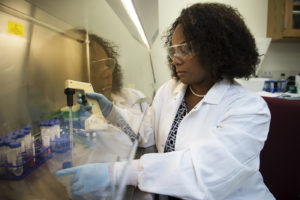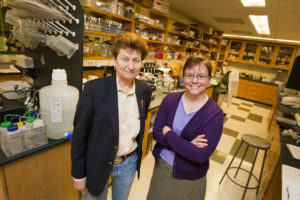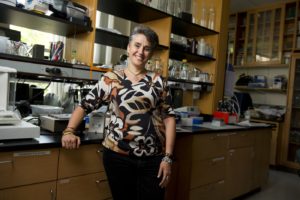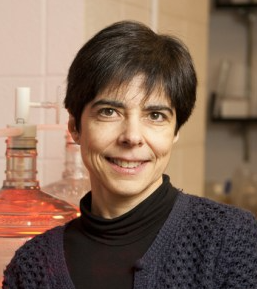VIEW Northeastern
Visit | Inspire | Explore | Wonder
Are you a talented student from an historically underrepresented population or a first-generation college student? If so, VIEW Northeastern welcomes and encourages applications from undergraduates from a variety of backgrounds and with varied experiences, including, but not limited to, applicants who are from historically underserved and underrepresented populations, female, first-generation students, African Americans, American Indian / Native Americans, and Hispanic Americans.
VIEW Northeastern is designed to help you learn more about your research options at Northeastern University as you pursue your PhD (research doctorate) options.
Northeastern is a global, experiential R1 research university with selective PhD programs that prepare students to become knowledge creators in high-demand fields. All programs are distinguished by outstanding faculty, resources that foster interdisciplinary study, and research that is use-inspired – designed to address urgent societal challenges.
 Northeastern offers a wide range of funding opportunities for PhD students. These opportunities include research and teaching assistantships as well as fellowships supported by internal and external funding. The STARS* fellowship is a unique opportunity funded by the National Science Foundation to strengthen the pathways for students from historically underrepresented minority groups to pursue STEM PhDs.
Northeastern offers a wide range of funding opportunities for PhD students. These opportunities include research and teaching assistantships as well as fellowships supported by internal and external funding. The STARS* fellowship is a unique opportunity funded by the National Science Foundation to strengthen the pathways for students from historically underrepresented minority groups to pursue STEM PhDs.
VIEW 2021 — Stay tuned for more information
VIEW Northeastern is an opportunity designed to increase the diversity of students who pursue PhD programs. All sponsored VIEW Northeastern participants will:
- learn about the application process and get “pro tips” from faculty on review commitees
- attend VIEW Northeastern’s virtual events, held throughout the 2021 – 2022 academic year
- gain insights from current PhD students
- network with PhD students and faculty
- access a virtual/asynchronous course for information and resources on navigating the PhD and getting to know Northeastern
Positions open until filled.
- Living and / or residing in the US or its territories
- Participants should show a record of enhancing diversity including diversity from one or more traditionally underrepresented groups or first generation college students
- Bachelor’s or Master’s degree in a field that supports one of Northeastern’s 34 PhD Programs
- Intention to pursue a PhD
- Visit phd.northeastern.edu/program to explore degree programs
- Complete the VIEW Northeastern application form below
All VIEW Northeastern participants are invited to participate in field specific workshops. More information coming soon.
VIEW Northeastern Application Form
Following your submission, you will be redirected to a website that describes the Northeastern PhD Network. You may return to this page by accessing phd.northeastern.edu/view.
- * The STARS Fellowship program is funded by the National Science Foundation LSAMP Bridge to the Doctorate Program (NSF Award #HRD-1812412), which is committed to engaging students from historically underrepresented minority groups (African American, Native American, and Latino) in graduate study within science, technology, engineering, and mathematics fields of study.













